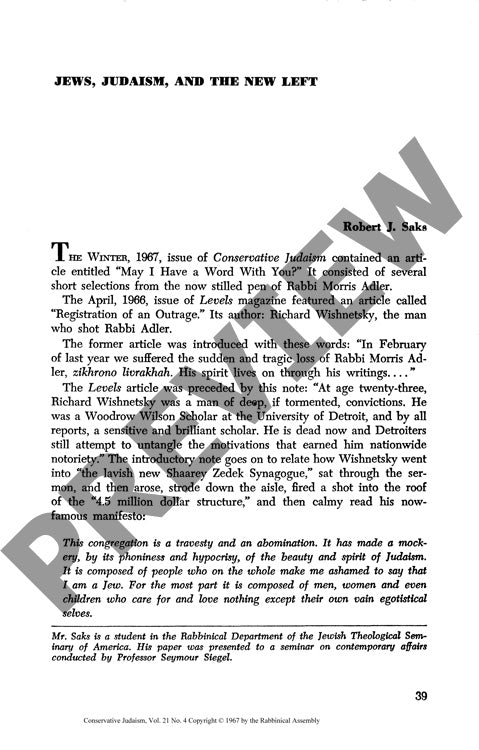Jews Judaism and the New Left
Couldn't load pickup availability
Young Jewish radicals of the 1960s flocked to New Left activism while rejecting traditional Judaism, creating a paradox of heightened political engagement alongside religious disaffiliation. Through interviews with student participants and campus rabbis, analysis of activist publications, and examination of contemporary articles, a complex picture emerges of Jewish youth navigating between their cultural heritage and revolutionary aspirations. Jews maintained disproportionately high participation in New Left movements compared to earlier leftist movements, yet demonstrated minimal connection to Jewish religious beliefs and practices. These activists frequently criticized synagogue hypocrisy, rejected traditional theistic concepts, and expressed profound alienation from established Jewish institutions. Nevertheless, many continued to embrace ethical values they associated with Jewish tradition, particularly social justice and humanitarian causes. Several approaches for reconciliation present themselves, including emphasizing Judaism's moral teachings, connecting social activism to Jewish historical experience, and developing institutional structures that accommodate youthful rebellion while maintaining Jewish identity. Meaningful engagement ultimately requires authentic institutional reform, theological reinterpretation, and recognition of generational tensions inherent in identity formation. These dynamics between religious tradition and political activism reflect broader struggles of American Jewish youth during this pivotal period of social upheaval.

More Information
-
Physical Description
-
Publication Information
Published 1967
ISBN
-
Publication Credits
Robert Saks

